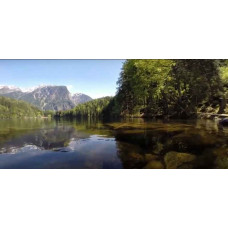An area of water body characterised by relatively homogeneous environmental conditions and occupied by a defined biocenosis.
Biotope (from the Greek βίος "life" + τόπος "place") is a relatively homogeneous area of geospace (land or water) occupied by a particular biocoenosis in terms of abiotic environmental factors. The characteristic set of conditions of the biotope determines the species composition of the organisms that inhabit it. Thus, in the most general sense, a biotope is the non-biotic part of a biogeocoenosis (ecosystem).
Biotopes are grouped into biocoenoses, which in turn are grouped into biocycles - the main parts of the biosphere: land, sea and inland waters.
The combination of geological conditions forms a lithope, soil conditions form an edaphotope, climatic conditions form a climatope, and so on. According to the monoclimax concept, within any biotope disturbed by anthropogenic activities or natural processes, a climax community (biocenosis) forms over time and is stable over time. This process (succession) goes through several stages (e.g. secondary grassland, shrub, forest).
The concept of biotope was introduced in 1866 by the German zoologist Ernst Haeckel in his book "General Morphology of Organisms" (in which he defined the term "ecology"). In it, he emphasised the importance of the concept of habitat as a prerequisite for the existence of organisms, explaining that in a given ecosystem, its biota is shaped by environmental factors and the interaction between living organisms. The original idea of the biotope was closely linked to the theory of evolution. And in 1908, F. F. Dahl, a professor at the Berlin Zoological Museum, introduced the term biotope itself to describe the concept.
Biotope
Tags: Biotope

